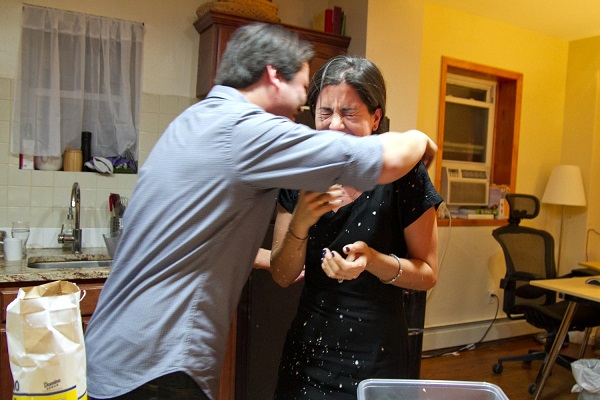


People who cut themselves often do so as a way of expressing their overwhelming emotions, most of which are frustration, disappointment (with oneself), feeling a failure and a similar gamut of expressions. And ultimately these people punish themselves for their feelings. A lot of self-harmers do so with the ultimate intention of dying, which is why you’ll find that a lot of people who commit suicide were also self-harmers.
As a friend, your immediate reaction might be shock, anger and confusion. But bear in mind that expressing such thoughts to your friend may not be the wisest thing to do.

The best thing you can do is to not be ignorant and stand like a helpless fool in front of your friend when she’s venting to you. The more knowledge you have on the subject, the better equipped you are to handle your friend’s outbursts of emotions.
Some people don’t like confrontations, while others believe simply ignoring a problem or shoving it under the carpet will eventually make it go away. While that may be true in some cases, it doesn’t hold water here. Your friend is going to hate herself after she’s done injuring herself, and as a good friend, it’s your duty to stand by her side in her trying times.

This is one of the most important things when it comes to how to help people who cut themselves. These people aren’t used to others helping them so it’s very likely they won’t open up to you the first time you approach them. Nor should you expect a breakthrough in the first few talks you have with them. This is a long and slow process, so be as patient and open to listening to their issues as you can. Don't get discouraged and take your time helping her.
Again, you don’t have to truly understand what they’re going through, in order to just be there. If you’re confused, angry, horrified, etc. keep those emotions to yourself. Focus on your friend and her emotions – be a good listener and just let her pour her heart out. Tell her you understand how difficult her position is, and that you’re there for her.
Don’t lecture or admonish her one minute, and then be the most understanding friend the next minute. Your behavior towards your friend and her condition has to be consistent. Gaining her trust is important and if you’re going to constantly go back on what you say and show her that your words hold no true value, then you’re not only going to lose her trust, but possibly her as a friend as well.

And make sure she knows that. Tell her that if you’re unable to be with her physically, you’re always a call or text away. Let her know that she can call you at any time of the day (or night) and you’ll be there to listen to what she has to say. However, make sure you aren’t being pushy when you’re making these statements, otherwise your plan for how to help people who cut themselveswill backfire.
A lot of self-harmers cut themselves mostly because of poor self-esteem and self-doubt. First, you have to reinforce the fact that there are many people, including you, in her life who love her and wouldn’t want to see her like this. Second, reinstate her faith in herself by stating all her achievements and accomplishments (academically, work, relationships, volunteer work, etc.). Make her feel she’s worth something and that people don’t view her as a failure or a waste of their time.
Don’t do so right in the beginning of your chats. You first need to gain her trust and confidence. That might take a while, but once you have it, she will listen to you. And that’s the time when you bring up the topic of getting professional help. Because let’s face it – there’s only so much you can do to help her. A counselor will help her properly understand and express her emotions, teach her how to cope with her emotions, give her alternate options to self-harming, and everything else that you aren’t aware of. IF, however, your friend is resistant to the idea of getting help even weeks after you’ve been her emotional support, it’s time to take things into your own hands and call a counseling center yourself, and ask to speak with a therapist. She will guide you as to how to move things forward.